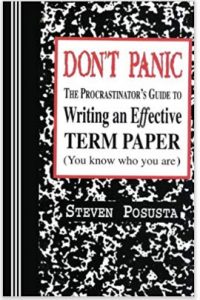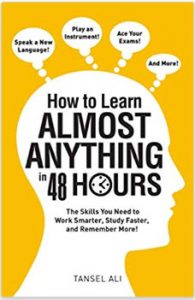
How To Study More Efficiently
Please note, this page contains affiliate links.
Are you having a hard time with studying? If you need to get your grades up or have a big test coming up, studying should definitely be one of your priorities. A lot of students get stressed about studying, but it is possible to greatly reduce your stress and to get better results by simply using the right strategies for studying. We will share some tips to teach you how to study more efficiently.
 Engage with The Subject
Engage with The Subject
Just reading your study books is NOT going to get the information going in, not unless you have a photographic memory and even then, it will not be catalogued in your brain: you may be able to recall the page perfectly but it is unlikely you will be able to pick information out and use it to answer a question, along with other information. It is important to do ACTIVE learning. Rather like being with another person, you need to ENGAGE with the subject. If you were in a room with a friend, you would talk to them, ask them questions, listen to their answers? Treat the subject you are studying like you would a friend. Ask questions, find the answers, write them down or take notes.
Time To Study
When do you usually study? The time of day you pick for studying can have an important impact on how much information you retain. You might find that it is easier to focus when you study at night once you are done with all your other obligations and have taken the time to relax. Or you might find that you get better results by studying early in the morning. Everyone is different and you will have to figure out what time of day works best for you.
Pulling an all-nighter is definitely not the best way to study. It is best to limit your study sessions to an hour or two and to focus on one topic at a time. Taking a few breaks can also help, as long as you have no problems with going back to studying once the break is over. The best way to take a break from studying is to move around or go outside. Avoid checking social media or texting friends during your breaks since you might find it difficult to go back to studying.
If You HAVE TO Pull An All-Nighter
Of course, if you find yourself near the deadline for studying or submitting a piece of work, you may have no other option. There is an easy-to-read, short book written for college students but also useful for high schoolers that helps you write a piece of work and submit it in time if you are stuck. The book takes only a couple of hours to read and can be downloaded onto a Kindle or ebook  reader so you an get it instantly. It is REALLY USEFUL and also easy to read: I used it as a doctoral student and wished I had had it when I was at school. It’s called “The Procrastinator’s Guide to Writing An Effective Term Paper” and is written by someone who was a procrastinator and has since become a college lecturer. It covers not only how to write but also helps you understand the question and provides an effective formula that you can adapt for writing any essay. In terms of studying, reading this book will give you ideas and practical help for engaging with the subject you are studying.
reader so you an get it instantly. It is REALLY USEFUL and also easy to read: I used it as a doctoral student and wished I had had it when I was at school. It’s called “The Procrastinator’s Guide to Writing An Effective Term Paper” and is written by someone who was a procrastinator and has since become a college lecturer. It covers not only how to write but also helps you understand the question and provides an effective formula that you can adapt for writing any essay. In terms of studying, reading this book will give you ideas and practical help for engaging with the subject you are studying.
Retaining Information
Figure out how you retain information. Some students have a visual memory and will remember written words or info-graphics while other students have an auditive memory and need to hear things. You might find it easier to remember things if you go over the notes you took in class and create summaries of the main concepts. Visual learners could create mind maps which show how the information links together. These mind maps are easy to create and to recall and unlike recalling the exact page, they show how different items link together. Visual learners can also use concept maps which are similar to mind maps.
Your Study Environment
It is very important to create the right environment to study. Avoid distractions as much as possible, for instance by switching your phone off. You might find that studying in a quiet environment helps you focus or might find that you get better results if there is music playing. You should keep music at a low volume and try listening to instrumental music, classical musical or music from video game soundtracks to avoid being distracted by lyrics.
Goals And Time Management
It is very important to set some studying goals and to create a schedule. You will get better results if you set some achievable goals and find a way to check if you remembered everything. You can for instance complete a short quiz after each study session to see how much you really learned. Creating a schedule is the best way to avoid stress and to make sure you have enough time to study everything before an exam.
You should be able to get better grades now that you know how to study more efficiently. Test different methods until you find something that works well for you since everyone is different and you need to figure out what kind of environment or studying method you prefer.